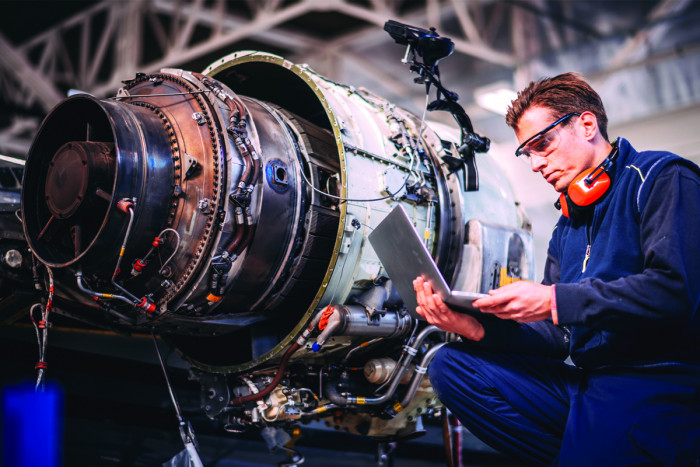Mechanical Engineering Technician
Kaihangarau Take Pūkaha
Alternative titles for this job
Mechanical engineering technicians help mechanical engineers design, develop, test and manufacture mechanical devices, including tools, engines and machines.
Pay
Entry-level mechanical engineering technicians usually earn
$49K-$65K per year
Mechanical engineering technicians in managerial roles usually earn
$85K-$140K per year
Source: careers.govt.nz research, 2020.
Job opportunities
Pay
Pay for mechanical engineering technicians varies depending on experience, responsibility and employer.
- Entry-level mechanical engineering technicians usually earn $49,000 to $65,000 a year.
- Mechanical engineering technicians with four to six years' experience usually earn $65,000 to $85,000.
- Mechanical engineering technicians in supervisory or managerial roles may earn $85,000 to $140,000.
Source: careers.govt.nz research, 2020.
- PAYE.net.nz website - use this calculator to convert pay and salary information
- Employment New Zealand website - information about minimum wage rates
(This information is a guide only. Find out more about the sources of our pay information)
What you will do
Mechanical engineering technicians may do some or all of the following:
- help mechanical engineers design machinery, products and equipment
- check designs created by mechanical engineers for safety and reliability
- estimate the amount of equipment needed to build machines or mechanical parts, and costs for these
- prepare drawings of parts, machinery and assembly plans
- oversee the building and installation of equipment and machinery
- test and repair equipment and machines
- supervise and work with engineering staff at sites such as power and manufacturing plants.
Skills and knowledge
Mechanical engineering technicians need to have knowledge of:
- engineering science and technology, maths and physics
- how to use machinery, tools, and construction materials
- mechanical processes such as how an engine works
- how to design and produce technical plans, drawings and models
- relevant computer programs, such as computer-aided design (CAD) software, for creating mechanical plans
- safety regulations and quality standards.
Mechanical engineering technicians also need to keep up to date with changes in technology, equipment and manufacturing methods.
Working conditions
Mechanical engineering technicians:
- usually work regular business hours, but some may do shift work
- usually work in workshops, factories, power plants, offices and on building sites
- may work in noisy and dirty conditions, using machinery that can be hazardous
- may travel between local sites or overseas on contract.
What's the job really like?

Lee King
Mechanical Production Supervisor
How did your engineering career start?
"I completed an apprenticeship as a heavy diesel mechanic, which gave me a solid foundation to progress my training. I then joined the Air Force and trained in aeronautical engineering as an aircraft technician.
"Now, as part of my role at Rocket Lab, I’m responsible for signing off components that are used in satellite launch vehicles."
What are the main skills you need as a mechanical production supervisor?
"Attention to detail and being able to understand engineering design and implementation are very important skills to have.
"The ability to think analytically and learn quickly are also important. Using these skills to find the cause of an issue means that faults can be identified and fixed."
What do you like about your job?
"I like working in a team of highly intelligent individuals with technical mindsets. I also like helping to develop and implement amazing engineering projects.
"Watching a rocket launch – knowing you’ve contributed to the successful launch of multiple satellites – is a feeling that's hard to describe.”
Engineering technician video
Angus Hawkins talks about his career as an engineering technician - 2.13 mins.
My family's always been around like farming and outdoor stuff but I'm kind of the first one to ever get into the engineering side of things and the building and making of stuff.
The world is gonna head towards a lot of automation of manual labor. Any easy tasks will just be done automatically, so it's the design and the control of that automation, and the management of that automation, that's where the time and effort will be. That and the creative kind of arts. So when it comes to engineering, you're working with machinery, you're working with automation and design, and management of those machines, and keeping those machines up and running.
We buy local honey. Some of it comes from up north but most of its
from central or up the South Island. We buy off local apiaries and we bring it into our warehouse. From there we melt it out because it's all solidified. We melt it and then dip it into our tip tank and run it through our filtration tank. From there we pump it into our big tanks and we cream it so that it creates tiny crystals and then it makes a smooth honey and will stay that way for a long time so it's got a really long shelf life. We pump it into jars and label it and pack it into pellets and then we ship it over to the States.
I think engineering gives you a curiosity about the world wanting to understand how things work and from that curiosity it kind of inspires you to learn more.
Entry requirements
There are no specific requirements to become a mechanical engineering technician.
To become qualified you can:
- complete an apprenticeship where you can gain a qualification such as the New Zealand Certificate in Mechanical Engineering (NZCME) – Trade.
- then complete further training while working to complete a full-time two-year New Zealand Diploma in Engineering (Mechanical) (Level 6).
Competenz oversees mechanical engineering apprenticeships.
If you wish to be registered with Engineering New Zealand, you can apply to be assessed for the New Zealand Diploma in Engineering Practice.
Secondary education
To gain entry to the New Zealand Diploma in Engineering (Mechanical), it is recommended that you have a minimum of 48 NCEA credits at Level 2 in four subjects, including at least 12 credits in maths. Physics is also highly recommended, and technology subjects may be useful.
Personal requirements
Mechanical engineering technicians need to be:
- practical and accurate, with an eye for detail
- able to make decisions quickly and work well under pressure
- good at problem solving
- patient and confident
- motivated and disciplined
- able to work well independently and as part of a team
- organised
- good at communicating.
Useful experience
Useful experience for mechanical engineering technicians includes:
- work in an engineering workshop
- any work using hand tools or operating machinery
- welding, pipe and sheet metal work.
Physical requirements
Mechanical engineering technicians need to:
- be reasonably fit, healthy and strong as they may do heavy lifting
- have good eyesight (with or without corrective lenses)
- be comfortable working in confined spaces and at heights, as they may need to climb ladders and crawl around machinery.
Registration
Registration with Engineering New Zealand is recommended for mechanical engineering technicians who want their experience and competence recognised.
Find out more about training
- Competenz
- 0800 526 1800 - info@competenz.org.nz - www.competenz.org.nz
- Engineering New Zealand
- (04) 473 9444 - hello@engineeringnz.org - www.engineeringnz.org
- Heavy Engineering Research Association (HERA)
- (09) 262 2885 - admin@hera.org.nz - www.hera.org.nz
- Institute of Refrigeration, Heating & Air Conditioning Engineers of New Zealand (IRHACE)
- (09) 262 1405 - admin@irhace.org.nz - www.irhace.org.nz
What are the chances of getting a job?
Mechanical engineering technician skills in demand
Demand for mechanical engineering technicians is high due to:
- an increase in infrastructure, manufacturing and construction projects
- a shortage of workers.
Mechanical engineering technician will appear on Immigration New Zealand's Green List from March 2024. This means the Government is actively encouraging skilled mechanical engineering technicians from overseas to work in New Zealand.
The Ministry of Business, Innovation and Employment reports that the number of people in the role has increased slightly in recent years, and is expected to grow by about 2% until 2023.
According to the Census, 1,821 mechanical engineering technicians worked in New Zealand in 2018.
Types of employers varied
Most mechanical engineering technicians work for private companies or consultancies across a broad range of industries, including:
- aeronautics
- building and construction
- manufacturing
- product development
- aviation, boat building and transport
- agriculture
- water and wastewater
- energy.
Sources
- Immigration New Zealand, 'Changes to Immigration Settings Announced,'23 September 2023 (www.immigration.govt.nz).
- Ministry of Business, Innovation and Employment, 'Occupation Outlook – Engineering Technicians’, accessed February 2020, (www.mbie.govt.nz).
- Stats NZ, '2018 Census Data', 2019.
(This information is a guide only. Find out more about the sources of our job opportunities information)
Progression and specialisations
Mechanical engineering technicians may progress to supervisory or managerial roles.
Mechanical engineering technicians can specialise in jobs such as:
- Boiler Technician/Operator
- Boiler technicians/operators monitor, maintain and sometimes repair boilers.
- Hydraulic Technician/Mechanic
- Hydraulic technicians/mechanics install, repair and maintain hydraulic equipment and machinery such as lifts, cranes and forklifts.
- Mechanical Laboratory Technician
- Mechanical laboratory technicians help mechanical engineers design, develop, test and manufacture mechanical devices, including tools, engines and machines.
Last updated 28 March 2025


